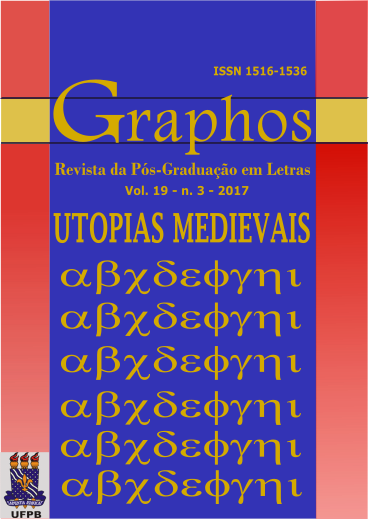Utopia, dystopia and the dissatisfaction with reality in The City of the Ladies by Christine de Pizan and The Last Man by Mary Shelley
Keywords:
Pizan, Shelley, Utopia, DystopiaAbstract
This work aims to consider the points that unite the utopia of Christine de Pizan The City of the Ladies, written in 1405, the end of the medieval period, and the dystopia of Mary Shelley The Last Man, text written in 1826, beginning of the XIX century. Pizan’s text, the first utopia written by a woman, places us before arguments that empower women intellectual capacities, problematizing their roles in society and bringing alternatives for the deconstruction of the misogynist thinking towards women through a utopian project that creates an ideal city where women have voice and space. In Shelley’s text, the first post-apocalyptic/dystopian work written by a woman, we find the development of a world where the human project failed due to the exacerbated will for power, selfishness and lack of love in social relations, making humanity be taken by a plague that spares only a single subject. Immune to the plague, the last man describes the end of humanity amongst pondering on human weakness in the face of its monstrous intentions, which prevents the construction of a just society. Written at different times and with different approaches of the world, the texts of Pizan and Shelley unite each other before the same point that unites the utopian and dystopian thought: the dissatisfaction with reality and this is the central argument of our analysis. Therefore, the texts of Garretas (1995), Deplagne (2012), Booker (1994), Cavalcanti (2006) and Moylan (2016), will be used as a theoretical contribution.
Downloads
References
BOOKER, M. Keith. Dystopian literatures: a theory and research guide. London: Greenwood Press, 1994.
CLAEYS, Gregory. Dystopia: a natural history. Oxford: Oxford University Press, 2017.
CLAEYS, Gregory. The origins of dystopia: Wells, Huxley and Orwell. In: CLAEYS, Gregory. The Cambridge Companion to Utopian Literature. United Kingdom: Cambridge University Press, 2010.
GORDIN, Michel D; TILLEY, Hellen; PRAKASH, Gyan. Utopia/dystopia: conditions of historical possibility. United Kingdom: Pinceton University Press, 2010.
MORE, Thomas. A Utopia. São Paulo: Edipro, 2016.
PIZAN, Christine. A Cidade das damas. Tradução e apresentação de Luciana Eleonora de Freitas Calado Deplagne. Florianópolis: Editora Mulheres, 2012.
PURKAR, Namrata. Dystopian writing as a part of science fiction. In: BITE, Vishwanath (ed). The Criterion: An International Journal in English. Vol. IV - Issue V. October, 2013.
SHELLEY, Mary. The Last Man. Edição bilíngue. Tradução de Marcella Machado C. Furtado. São Paulo: Editora Landmark, 2007.
VIEIRA, Fátima. The concept of utopia. In: CLAYERS, Gregory (ed.). The Cambridge companion to utopian literature. United Kingdom: Cambridge University Press, 2010.







